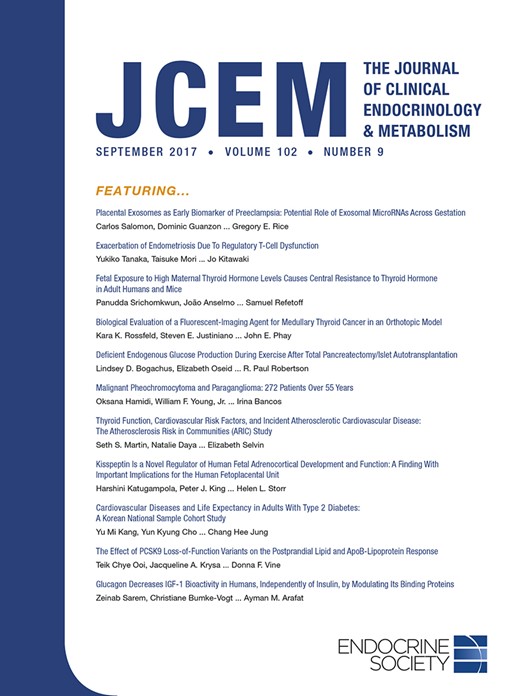-
PDF
- Split View
-
Views
-
Cite
Cite
Rachel K Voss, Elizabeth G Grubbs, Response to Letter: “Medullary Thyroid Carcinoma in MEN2A: ATA Moderate- or High-Risk RET Mutations Do Not Predict Disease Aggressiveness”, The Journal of Clinical Endocrinology & Metabolism, Volume 102, Issue 9, 1 September 2017, Page 3559, https://doi.org/10.1210/jc.2017-01299
Close - Share Icon Share
We thank Drs. Castinetti and Whollk for their comments on our article (1). In regard to their point about potential closer follow-up and more aggressive management in patients harboring 634 RET mutations, treatment of advanced disease, including use of radiation therapy, chemotherapy, and tyrosine kinase inhibitor, was statistically the same between the two groups.
We agree longer follow-up is necessary before final conclusions can be drawn. However, we felt it important to raise the issue of modification of the current terminology, given our findings that show a similarly aggressive clinical course after diagnosis in high- and moderate-risk RET mutation groups. We are not suggesting those individuals with high-risk mutations be treated with less intensity but rather that those harboring moderate-risk mutations be given equal concern for aggressive disease, with the understanding the disease often presents later than their high-risk counterparts. We look forward to future results from both our institution as well as other groups that may add to the discussion and continue to refine the semantics used in the current American Thyroid Association guidelines.
Acknowledgments
Disclosure Summary: The authors have nothing to disclose.
References



